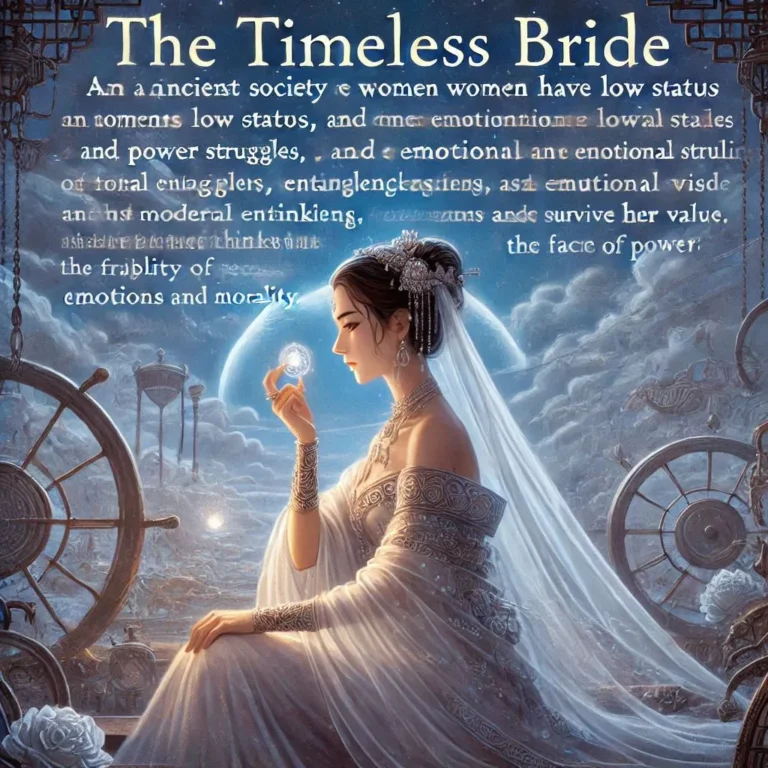Mao An’an, who hadn’t eaten cooked food in half a month, was buried in a bowl of stew, eating without looking up. Prince Mir sat beside her, watching her devour the food with a gloomy look, while Butler Drew wore an expression of ‘I’ve taught it many times, but that lower life form just can’t learn noble etiquette, it’s really embarrassing.’
“Sigh…” Prince Mil let out a soft sigh. “Your Highness, don’t worry too much,” Butler Drew comforted Prince Mil, who was about to undergo the ‘mating’ ceremony. “Once a newborn is born and bestowed the title of heir, your power will immediately surpass that of Duke George.” Mao Anan lifted his greasy face, “Mil, has someone taken over your position?” Butler Drew sternly reprimanded ‘it’, “How dare you address His Highness by his name without his title or rank!” Prince Mil waved his hand, protectively pulling Mao Anan onto his lap, “I let him call me that,” then, ignoring Butler Drew who was left aside, he turned to ask Mao Anan, “What do you mean by someone taking over my position?” Mao Anan wiped his mouth, “Duke George presented a woman and gained the same status and power as you. From now on, if you want to eliminate someone, you’ll have to consult with him. If you want to go out and play, you’ll have to include him. If you two fight, no one except Prince Lierben would dare to intervene. Such a life sounds utterly boring.” Prince Mil: … How does that sound so tragic? Butler Drew: … Please don’t discourage His Highness further! Mao Anan continued, “Why do I always feel like Prince Lierben is hiding behind you, using you as cannon fodder?” Butler Drew turned green with worry, wishing he could silence Mao Anan, and hastily explained, “It’s not like that, Your Highness. His Highness the Prince does this to ensure you can make meritorious contributions, so that the title of heir is well-deserved. With your outstanding abilities, you could never be mere cannon fodder!” Mao Anan, frightened, clung to Prince Mil’s arm, “Mil, Drew is yelling at me again…” Prince Mil affectionately tapped Mao Anan’s head. After long intimate contact, Prince Mil had learned to control his strength, and his gentle taps could make ‘it’ comfortably yawn, “Drew, mind your manners. Shouting is not aristocratic etiquette.” Drew’s eyes reddened with urgency, “Your Highness, you…” Prince Mil added, “I understand Father’s decision. A noble who has not been baptized by war cannot truly be considered a noble. The excellent genes of nobles have evolved through centuries of refinement, but innate advantages alone cannot silence the critics.” Mao Anan nodded as if understanding, “It’s like the purebred dogs on Earth. Through long-term natural selection and artificial breeding, they have standard forms, beautiful appearances, desirable temperaments, and enduring economic value, but they still need training to become the perfect companions humans envision, right, Uncle Drew?” Butler Drew let out a wail, collapsing to the ground, frothing at the mouth. Prince Mil’s eyes crinkled with laughter. After the laughter subsided, Prince Mil was still troubled. The division of power was one issue, and the approaching day of adulthood was another concern. Mao Anan couldn’t understand why stepping into adulthood and not having to endure those perverse trainings was something to worry about. However, after listening to Butler Drew describe the noblewoman introduced by Duke George, Mao Anan also began to worry. It was said that this noblewoman had not yet borne a child, not because she wasn’t beautiful or of noble blood, but because she was too formidable. Her combat abilities were ranked first in Austin alongside Prince Lierben, meaning even Prince Lierben himself might get beaten by her. The legendary Goddess of War, Gabriel. So far, no man had managed to defeat her, and suitors lined up, but she could easily toss out a whole company of battle-hardened men. Mao Anan, sitting on Prince Mil’s lap, swung his legs, “Mil, do you have confidence in handling her?” Prince Mil shook his head with concern. Mao Anan, using his Earthly wisdom, whispered into Mil’s ear, suggesting a dubious plan for the distressed prince, “If you can’t, just drug her. You should have something like that, right?” Prince Mil looked at Mao Anan in shock, Mao Anan’s expression firm and lewd. All for reproduction. Who would have thought that the noble and gentlemanly Prince Mil would stoop to drugging Gabriel with a muscle relaxant for the ‘mating’? But after a hundred years as a prince, he couldn’t bring himself to do such a thing. Drew’s face was black from the moment he learned about this until he got the drug, let alone administering it. Thus, this honorable and challenging task fell to Mil’s most trusted and beloved ‘it’. The day of adulthood arrived, and the wedding ceremony was held on the same day. All nobles of Austin were dressed in their finest, attending the ceremony. Prince Mil, as the key figure, wore a snow-white military uniform with a pure white fur cloak, slowly entering the sacred ceremony hall amidst the wind. Prince Lierben was still in black, but with a silver crown shaped like feathers in his dark hair. “Prince Mil, from today, as the heir, you must bear the honor and decline of the Austin Empire, including protecting Kino from external invasion, ensuring your people live in peace and happiness, and it is your duty to produce excellent offspring for the empire. Gabriel awaits you; conquer her, cherish her, and create new life for the empire. May the God of Austin bless your success tonight.” Prince Mil respectfully half-kneeled, kissing the black fur cloak of Prince Lierben, solemnly responding, “I accept your blessing, Father.” As a lower life form, Mao Anan, of course, could not follow Prince Mil into the ceremony to receive the title but had to wait outside with Drew. Mao Anan whispered to Drew, “Why do I feel like these nobles are acting like pimps?” Drew, worriedly watching the ceremony hall, didn’t immediately catch on, “Pimps?” Mao Anan explained, “They’re matchmaking, encouraging improper relationships between men and women.” Drew: !!!! “What nonsense are you talking about? Prince Mil and Lady Gabriel are recognized by all nobles as a perfect match,” Drew said indignantly. “Prince Mil is handsome and gentle, Lady Gabriel is brave and skilled in combat, what a perfect union!” Mao Anan looked at Drew, “Do you think Mil likes Gabriel?” Drew was at a loss for words, then after a while, he grunted, “Whether he likes her or not doesn’t matter; producing excellent offspring is the most important, it’s both a responsibility and a duty!” He sighed, “Compared to Lady Gabriel, it seems Prince Mil likes you more.” Mao Anan was delighted, then alarmed. Drew continued, “But you’re a lower life form, even less than a commoner. Even if all the women in the Austin family were dead, it wouldn’t be your turn.” Mao Anan exhaled in relief, patting his frightened little heart.
Here is the English of the provided Chinese text:

ReadingWorms
"Unlock the joy of reading—discover, explore, and grow with ReadingWorms!"

ReadingWorms
"Unlock the joy of reading—discover, explore, and grow with ReadingWorms!"


